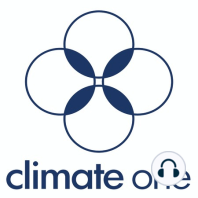61 min listen
Canada’s Oil Sands: Energy Security, or Energy Disaster? (8/30/11)
FromClimate One
ratings:
Length:
66 minutes
Released:
Sep 1, 2011
Format:
Podcast episode
Description
Canada’s Oil Sands: Energy Security, or Energy Disaster? Cassie Doyle, Consul General, Canada; Former Canadian Deputy Minister of Natural Resources Jason Mark, Earth Island Institute Carl Pope, Chairman, The Sierra Club Alex Pourbaix, President of Energy and Oil Pipelines, TransCanada The 1,700-mile Keystone XL pipeline would carry heavy crude oil from Alberta to America’s Gulf Coast refineries. In this Climate One debate, a panel of experts argues for and against the controversial pipeline. For Alex Pourbaix, President of Energy and Oil Pipelines, TransCanada, the pipeline builder, and Cassie Doyle, Canada’s Consul General in San Francisco, the merits of the project are clear: America would bank a stable, secure supply of crude from a friendly neighbor. Why would the United States opt to buy crude from anyone other than Canada if given a choice?, asks Pourbaix. “To suggest that those other countries are more responsible environmental citizens than Canada begs comprehension. It is far more compelling to be getting your oil needs from Canada, rather than getting it from other countries such as Libya, Nigeria, or Venezuela,” he says. Cassie Doyle downplays the environmental impact of processing the Alberta oil sands’ heavy crude. “We assume that the oil sands production is static when it comes to environmental performance. When, since 1990, we’ve seen a 30% improvement in the carbon intensity per barrel.” Sierra Club Chairman Carl Pope and Jason Mark, Editor of the Earth Island Journal, dismiss both claims – that Keystone XL crude will stay in the United States and can be extracted without exacerbating climate change – as implausible. “This is really an export pipeline. It’s not really an import pipeline,” says Pope. “The United States is going to be used as a transit zone and a refining zone. We’re going to take the environmental risks.” Jason Mark faults the State Department environmental review for not acknowledging the pipeline’s contribution to climate change. “The U.S. State Department said that this pipeline would have ‘no significant environmental impact.’ As a journalist, that felt to me like the classic example of the headline writer not actually reading the story.” Mark highlights what is, to him, the even larger issue. “Is the United States going to be complicit in burning megatons more carbon dioxide that’s going to fuel run-away climate change?” We have a choice, he says, “Do we continue to make investments that leave us on the path of a carbon-intensive economy? Or, when do we make the hard decision that says we’re going to stop using oil?” This program was recorded in front of a live audience at the Commonwealth Club of California, San Francisco on August 30th, 2011
Learn more about your ad choices. Visit megaphone.fm/adchoices
Learn more about your ad choices. Visit megaphone.fm/adchoices
Released:
Sep 1, 2011
Format:
Podcast episode
Titles in the series (100)
Sherry Boshert, Author of "PLUG-IN CARS: HOW TO GET ONE AND WHY": Plug-in Hybrid car technology is explained by author Sherry Boshert early in 2007. by Climate One
